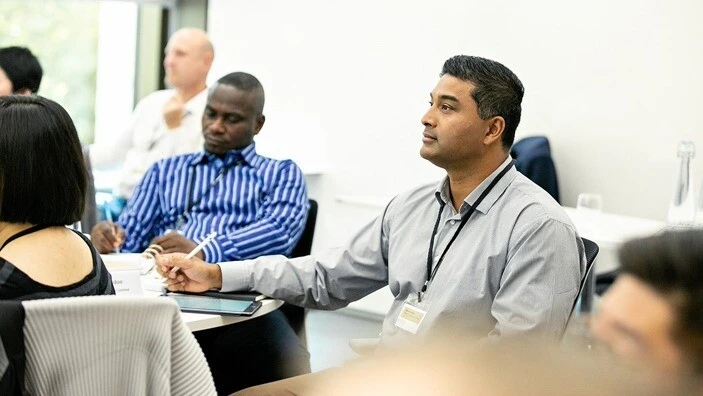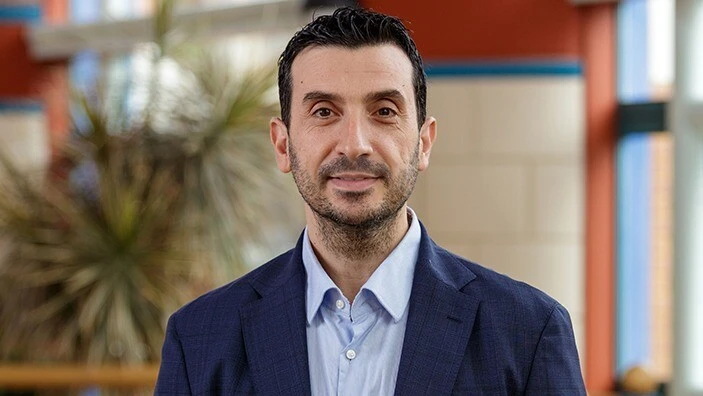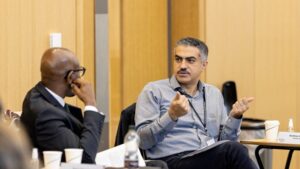Business Analytics and AI: Decision-Making Using Data
Help your organisation perform better with data-informed decisions. Discover the tools to transform your business into a data-driven organisation.
Upcoming programme dates to be confirmed.
Overview
How can analytics improve your business? Put data to work. In today’s digital economy, making decisions informed by data is essential. Business Analytics and AI: Decision-Making Using Data is a hands-on programme designed to help you identify trends, set up experiments and collect data as you navigate the organisational, legal and ethical issues involved in data-based decision-making.
Build expertise in key business analytics frameworks, including bias, experimentation, and descriptive, prescriptive and predictive analytics. Discover our ground-breaking research in neural networks and decision tree analysis. Gaining hands-on experience in evidence-based decision-making and implementing the frameworks you have learned; we invite you to explore the latest data-science principles. Explore new perspectives with a diverse group of international participants and learn to make better decisions informed by data.
Benefits and career impact
Exploit the power of analytics and use data to drive your organisation to success.
- Gain the tools to turn your business into a data-driven organisation.
- Recognise the different types of biases that impact decision-making – and learn to overcome them.
- Learn about the sources of data and the intermediary software services that collect them.
- Understand the reasons behind past events by analysing and summarising data.
- Predict future outcomes by choosing the appropriate machine learning algorithm to use in a business context.
- Gain a digital certificate of completion from Cambridge Judge Business School Executive Education.
- Ask questions critical to your business and identify the data needed to answer them.
- Undertand the challenges of implementing data within your organisation.
- Identify the legal and regulatory issues involved in data-driven decision making.
- Improve your organisation’s performance through better decisions based on data.

We all need to develop a mindset of living with constant change. Data-driven projects won’t end anymore but will constantly evolve and iterate. We will be continually testing, experimenting and changing things as our customers’ and clients’ needs and desires change.

This programme is being delivered in collaboration with Emeritus.
Programme content
Harness data as a strategic asset within your organisation, gaining the tools to drive a culture of data-driven decision making.
Module 1: Mapping business decisions to data
- Understand how organisations ensure that appropriate data guides their decisions to achieve better results.
Module 2: Getting creative with Big Data
- Learn how to generate value from available data with a creative mindset, and apply learnings to find the best solutions to presented problems.
Module 3: Experimental design
- Understand how experiments should be designed based on the robust principles of experimental design – identifying key performance drivers and testing alternative hypotheses.
Module 4: Machine learning
- Analyse the intuition of different algorithms, and evaluate their trade-offs.
Module 5: Causal analytics
- Explore the significance of causal analytics in demonstrating business value, and learn different methods to run causal analysis.
Module 6: Generative AI
- Gain a comprehensive understanding of what generative AI and machine learning are, how they are different from each other and the intuition of how generative AI works.
Module 7: Legal and ethical use of data and AI
- Explore the legal and ethical dimensions of data usage in the context of machine learning and generative AI.
Module 8: Making business analytics and AI happen
- Learn to align projects with business goals, and foster a data-driven culture to overcome organisational challenges in analytics projects.

How you learn: Online
Our fully online programmes allow you the greatest level of flexibility as to where and when you study. Structured in weekly components through a mix of curated videos, live webinars with Cambridge faculty plus Q&A sessions with Live Chat, assignments and discussions, take advantage of individual support from programme Leaders and a dedicated Programme Support Team. Our online programmes are delivered in collaboration with either Eruditus Executive Education or the Emeritus Institute of Management.
Who attends
This programme is specifically designed for business managers across different functions who drive, or intend to drive, analytics projects at their organisation.

Faculty and speakers
Learn from our world-class faculty who bring fresh insights from their leading-edge research into all of our Executive Education programmes.
PhD (Georgia Institute of Technology)
Academic Director of the Psychometrics Centre
PhD (University of Nottingham)
Why Cambridge Judge Business School?
Related programmes
Business Analytics and AI: Decision-Making Using Data belongs to our Managing Organisations-topic executive education programmes. Here are a selection of related programmes:
Strategic Decision-Making for Leaders
Learn to think strategically, lead through uncertainty and improve the quality of your decision-making at every level.
People Analytics: Transforming HR Strategy with Data Science
Align your HR decision-making with corporate objectives by leveraging the data that already exists within your organisation.
Integrating Risk into Strategic Decision-Making
Expand your mindset beyond traditional areas of risk, learning to respond dynamically to economic volatility, change and digital disruption, and improving your ability to thrive in the face of complex threats and opportunities.
Contact us
If you have any questions or would like to have a chat about this programme and how it could benefit you or your organisation, please get in touch with the Open Programmes team:













